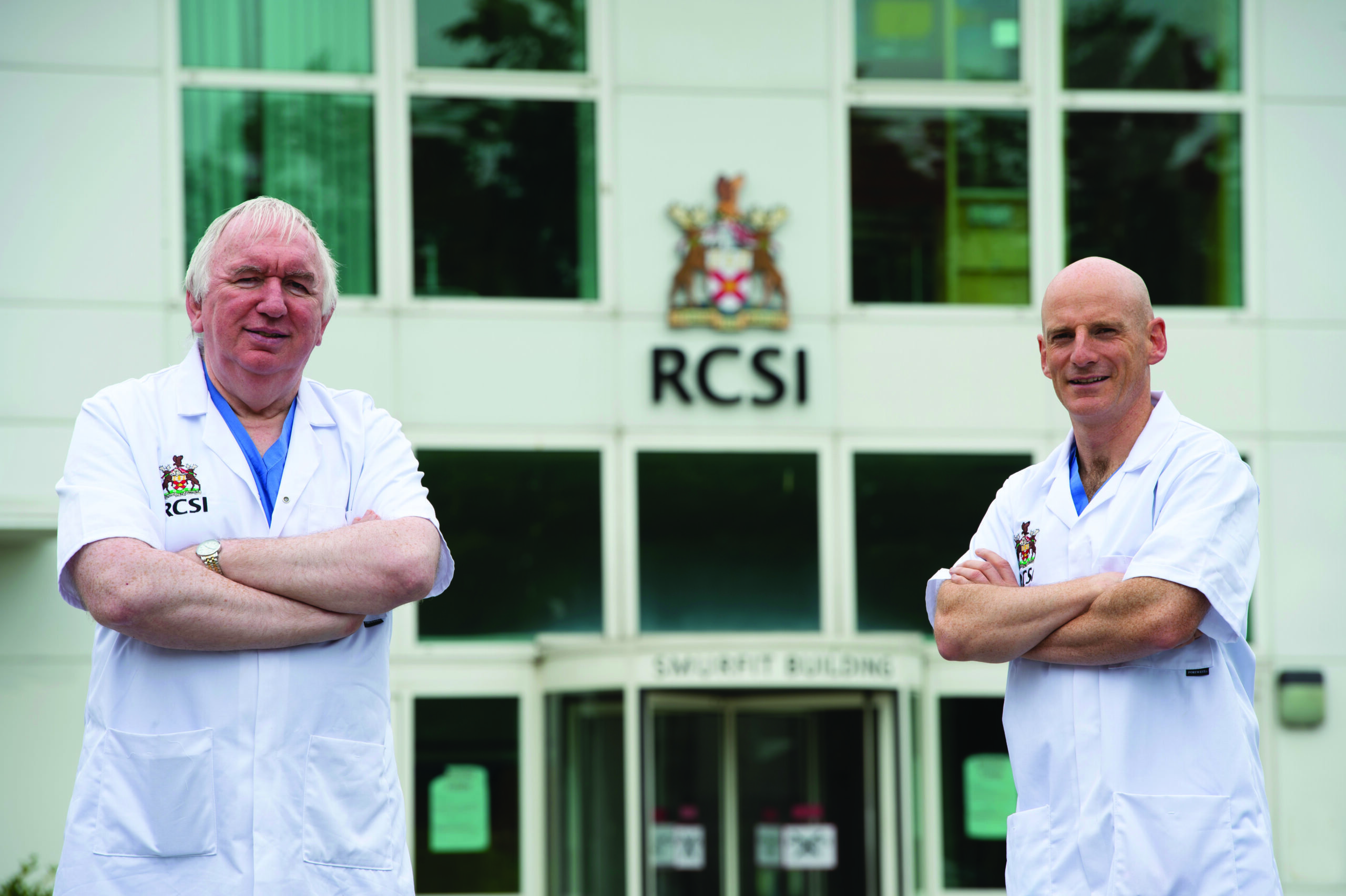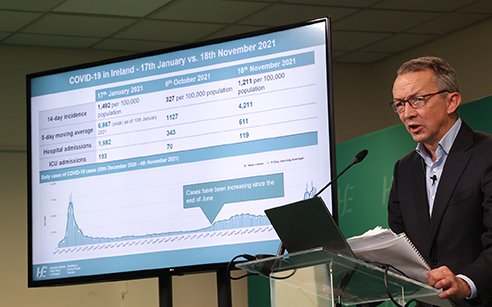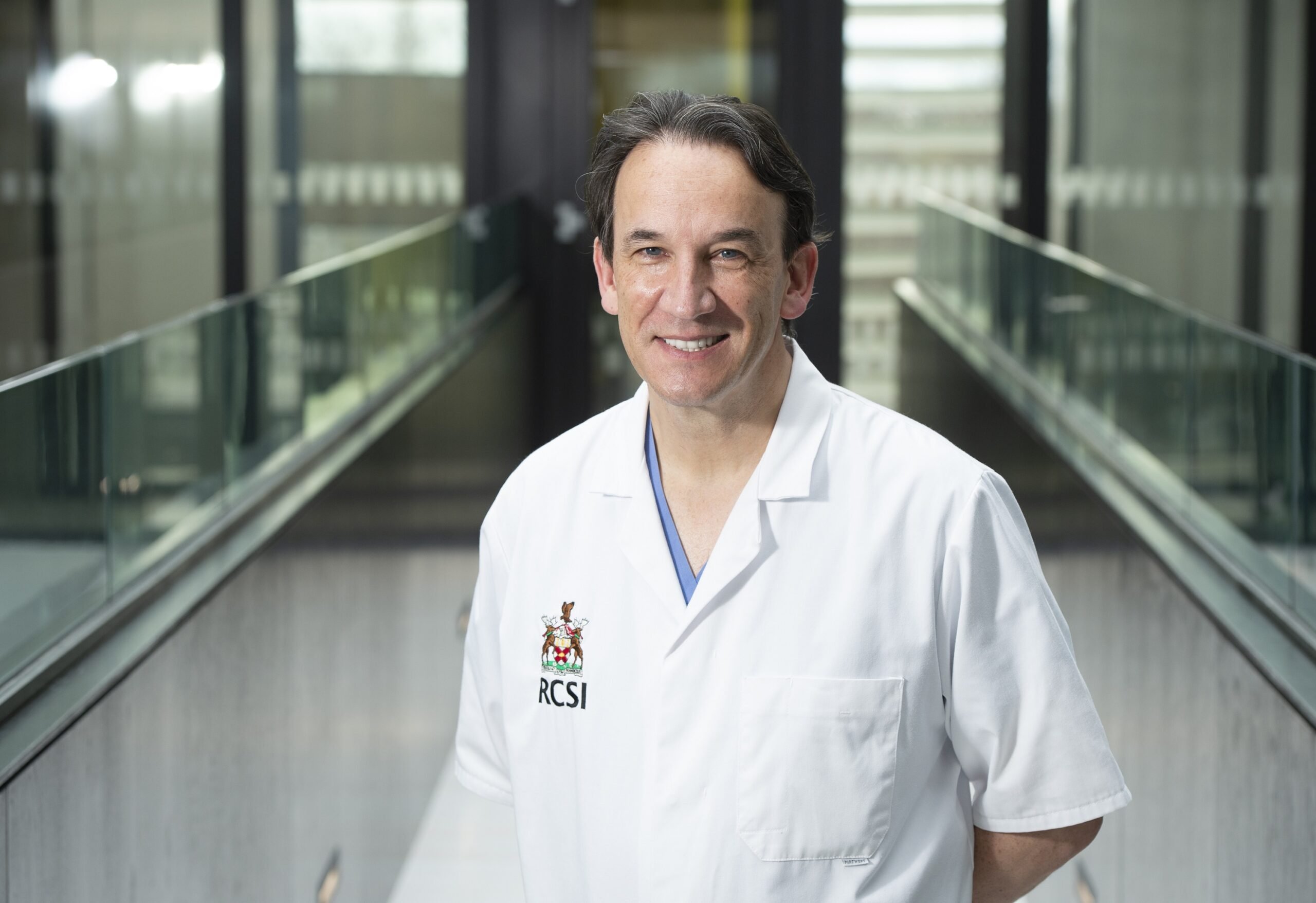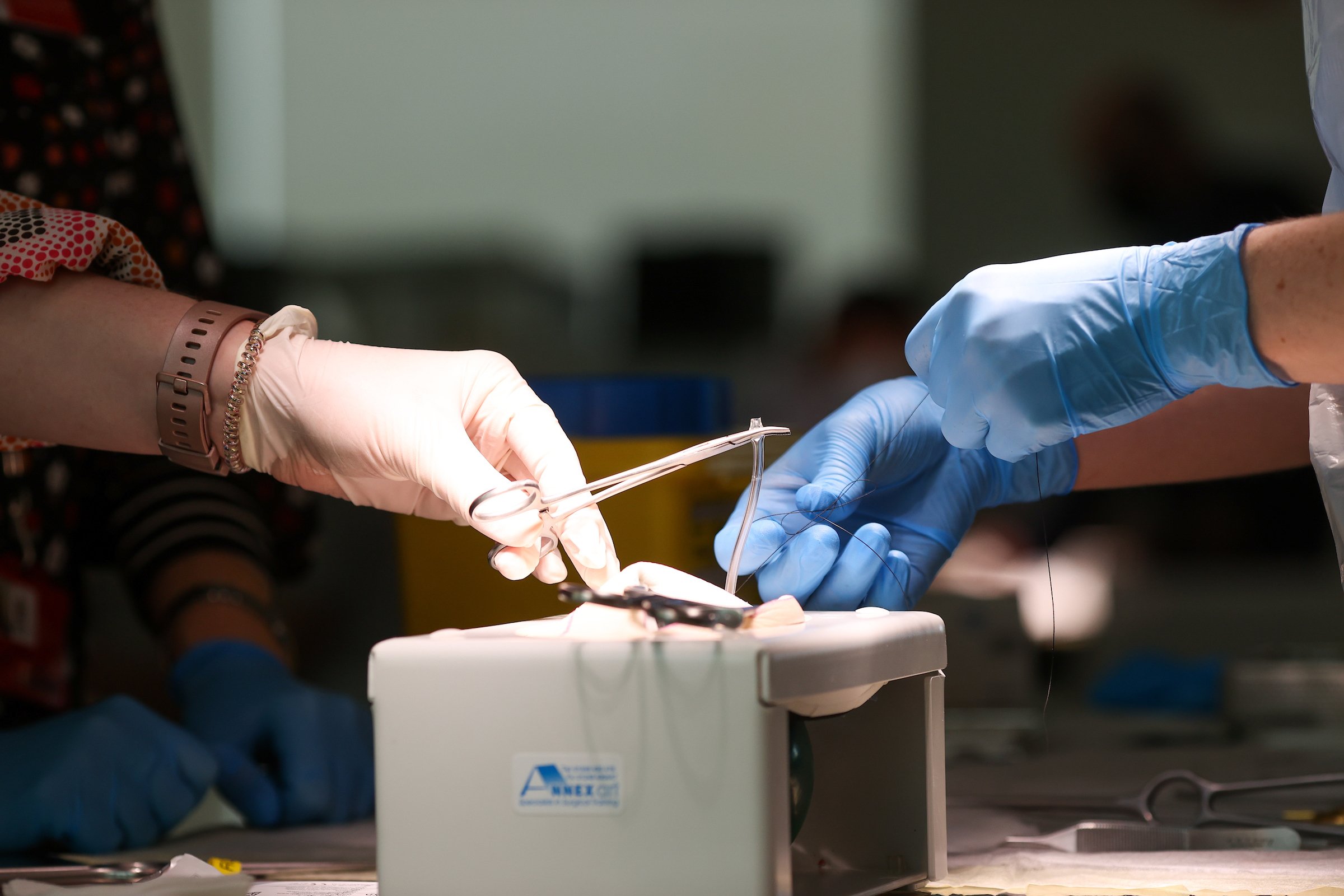Clinician researchers at RCSI University of Medicine and Health Sciences have developed, for the first time, a score that can accurately predict which patients will develop a severe form of COVID-19. The study was published in The Lancet's translational research journal EBioMedicine this month. The measurement, called the Dublin-Boston score, is designed to enable clinicians to make more informed decisions when identifying patients who may benefit from therapies, such as steroids, and admission to intensive care units. Pictured (l-r) is RCSI Professor of Medicine Gerry McElvaney, the study’s senior author with co-author, RCSI Professor of Anaesthesia and Critical Care, Ger Curley. Picture credit: Ray Lohan/ RCSI
Clinician researchers at RCSI University of Medicine and Health Sciences have developed, for the first time, a score that can accurately predict which patients will develop a severe form of Covid-19. The study was published in The Lancet’s translational research journal EBioMedicine last month. The measurement, called the Dublin-Boston score, is designed to enable clinicians to make more informed decisions when identifying patients who may benefit from therapies, such as steroids, and admission to intensive care units.
Pictured L-R are: RCSI Professor of Medicine Gerry McElvaney, the study’s senior author, with co-author, RCSI Professor of Anaesthesia and Critical Care Ger Curley













Leave a Reply
You must be logged in to post a comment.